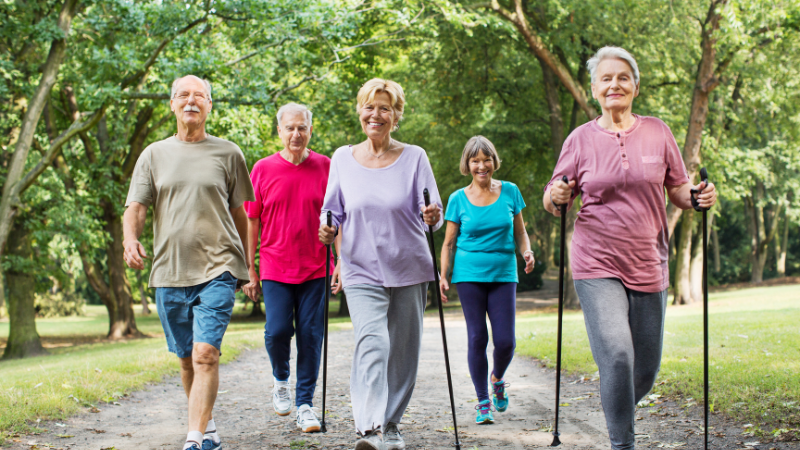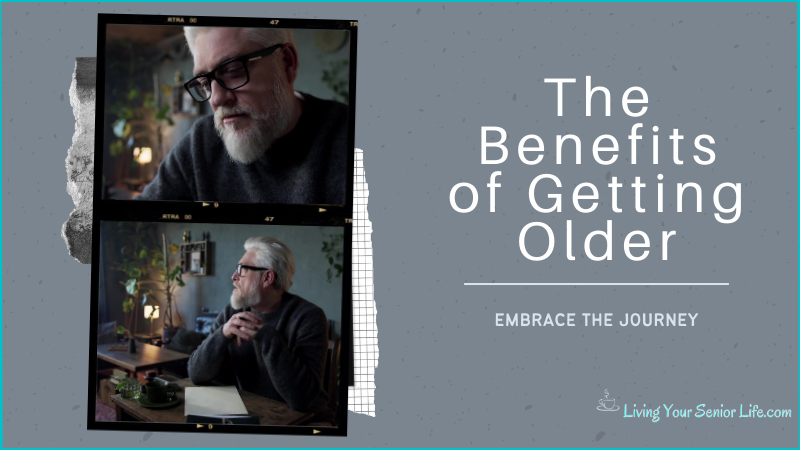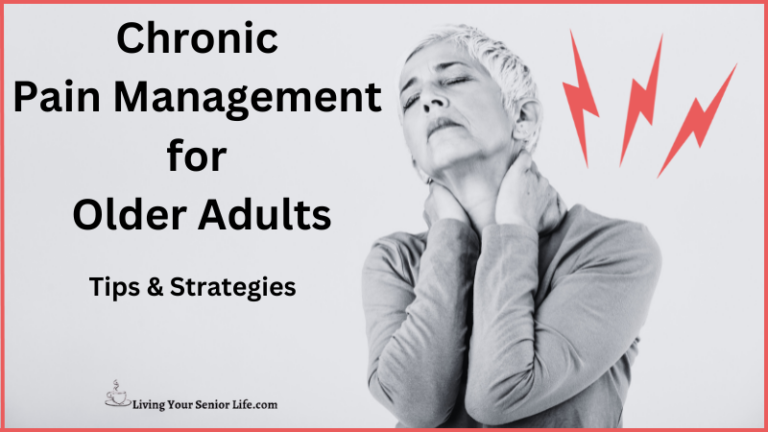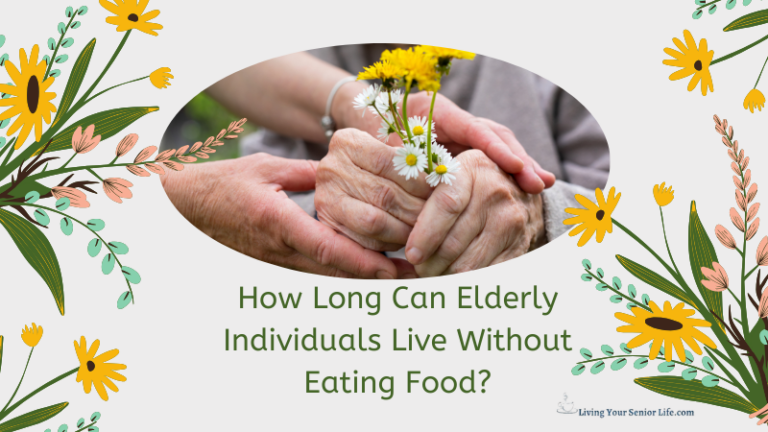As you age, it’s important to take care of your health and well-being. Healthy aging involves making lifestyle choices that can help you maintain your physical, mental, and emotional health. By adopting healthy habits and staying active, you can age gracefully and enjoy a high quality of life. In this article, we’ll provide an overview of healthy aging tips and strategies for staying healthy as you age.
Key Takeaways:
- Healthy aging involves making lifestyle choices that can help you maintain your physical, mental, and emotional health.
- Understanding the aging process is key to taking steps to manage changes and maintain your health.
- By staying active, eating well, managing stress, and staying socially and mentally engaged, you can enjoy a high quality of life as you age.
Understanding Aging
As you age, your body and mind go through changes that can affect your overall health and wellbeing. While aging is a natural process, it can also bring about challenges such as chronic diseases and cognitive decline.
Research has shown that chronic diseases such as heart disease, diabetes, and cancer are more common in older adults. These diseases can be managed through healthy lifestyle choices such as regular exercise, healthy eating, and avoiding smoking and excessive alcohol consumption.
Cognitive decline is also a common concern for older adults, with Alzheimer’s disease being a major cause of memory loss and cognitive impairment. However, there are steps you can take to maintain cognitive health such as staying mentally active, getting regular exercise, and following a healthy diet.
It is important to understand that aging affects everyone differently and at different rates. Some older adults may experience memory loss and cognitive decline earlier than others, while some may remain sharp and active well into their golden years.
By taking care of your physical and mental health, you can age gracefully and maintain your independence and quality of life.
Tip 1: Exercise Regularly

Staying physically active is crucial for healthy aging. Regular exercise and physical activity can help you maintain your strength, flexibility, balance, and overall health. Exercise can also help improve your mood, boost your energy levels, and reduce your risk of falls and chronic diseases.
Walking is a great way to get started with physical activity. It is low-impact and easy on the joints, making it a great option for seniors. Aim for at least 30 minutes of brisk walking every day. You can also try other aerobic activities like dancing, swimming, or cycling to get your heart rate up and improve your cardiovascular health.
In addition to aerobic exercise, it is important to do muscle-strengthening activities at least two days a week. This can include lifting weights, doing push-ups or squats, or using resistance bands. Strength training can help you maintain your muscle mass, improve your balance, and reduce your risk of falls.
Flexibility exercises like yoga and tai chi can also be beneficial for seniors. These activities can help improve your range of motion, reduce stiffness, and improve your balance and coordination. They can also help reduce stress and improve your overall sense of well-being.
Remember to always talk to your doctor before starting a new exercise program, especially if you have any health concerns or chronic conditions. Start slowly and gradually increase the intensity and duration of your workouts. And don’t forget to get enough sleep! Quality sleep is essential for your overall health and well-being.
Video: Healthy Aging Tips For Seniors
Tip 2: Eat a Healthy Diet

As you age, it becomes increasingly important to maintain a healthy diet that provides your body with the nutrients it needs. A healthy diet can help support muscles and strengthen bones, which can help with balance and independence.
To ensure you’re getting the nutrients you need, focus on eating a variety of fresh fruits and vegetables, whole grains, healthy fats, and lean proteins. Make sure to limit your intake of added sugars and packaged foods, which can be high in calories and low in nutrients.
Incorporating fiber into your diet is also important for maintaining a healthy weight and keeping your digestive system running smoothly. You can get fiber from sources such as whole grains, beans, nuts, and fresh fruits and vegetables.
Dairy products can provide you with important minerals like calcium and vitamin D, which are essential for maintaining strong bones.
Be mindful of your salt intake and try to limit your consumption of butter and other saturated fats. Instead, focus on healthy fats like those found in nuts, seeds, and fatty fish.
While it’s important to get your nutrients from whole foods, taking supplements can also be beneficial. Talk to your doctor about whether you should consider taking supplements to ensure you’re getting all the vitamins and minerals you need.
Finally, don’t forget to drink plenty of water to stay hydrated. You can also get water from foods like fresh fruits and vegetables, soups, and cereals.
By making these simple changes to your diet, you can help ensure that you’re getting the nutrients you need to maintain a healthy body and mind.
Tip 3: Get Enough Sleep

Getting enough sleep is crucial to healthy aging. As you age, your sleep patterns may change, and you may find it more difficult to fall asleep or stay asleep. According to the National Institute on Aging, older adults need 7-9 hours of sleep per night. However, many seniors struggle to get the recommended amount of sleep.
Tips for Better Sleep
Here are some tips to help you get a good night’s sleep:
- Stick to a regular sleep schedule. Try to go to bed and wake up at the same time every day, even on weekends.
- Create a relaxing bedtime routine. This can include taking a warm bath, reading a book, or listening to calming music.
- Make sure your sleeping environment is comfortable. Your bedroom should be cool, quiet, and dark. Invest in a comfortable mattress and pillows.
- Avoid caffeine, alcohol, and nicotine before bedtime. These substances can interfere with your sleep.
- Try to get regular exercise during the day. Physical activity can help you fall asleep faster and stay asleep longer.
- Limit daytime napping. If you must nap, try to keep it short (20-30 minutes) and avoid napping late in the day.
When to Talk to Your Doctor
If you are still having trouble sleeping, you may want to talk to your doctor. They can help you identify any underlying medical conditions that may be affecting your sleep, such as sleep apnea or restless leg syndrome. Your doctor may also recommend sleep aids or other treatments to help you get the rest you need.
Remember, getting enough sleep is essential to healthy aging. By following these tips and talking to your doctor if necessary, you can improve the quality of your sleep and enjoy better overall health and well-being.
Tip 4: Stay Socially Active

As you age, staying socially active is just as important as staying physically active. Social isolation can lead to a number of mental and physical health risks. According to a study, social isolation increases the risk of depression, cognitive decline, and even death.
To stay socially active, consider joining a club or group that interests you. This can be a great way to meet new people and stay engaged in your community. You could also volunteer at a local organization or participate in community events.
Another option is to use technology to stay connected with family and friends. Video chat apps like Skype and Zoom make it easy to stay in touch with loved ones who may live far away. Social media platforms like Facebook can also be a great way to stay connected with friends and family.
In addition to these strategies, it’s important to prioritize regular social interaction in your daily routine. This could mean scheduling regular phone calls with friends or family members or simply making an effort to strike up conversations with people in your community. By staying socially active, you can help maintain your mental and emotional well-being as you age.
Tip 5: Manage Stress

Stress is a natural part of life, but it can have negative effects on your physical and mental health. As you age, managing stress becomes even more important. Here are some tips to help you manage stress as you age:
Stay Active
Physical activity is an excellent way to reduce stress. Exercise releases endorphins, which are natural mood boosters. It also helps you sleep better, which can reduce stress levels. Try to get at least 30 minutes of moderate exercise every day. This can include walking, swimming, or cycling.
Practice Relaxation Techniques
Relaxation techniques can help reduce stress and promote relaxation. Some popular relaxation techniques include:
- Deep breathing
- Meditation
- Yoga
- Tai chi
Stay Connected
Social support is important for managing stress. Spend time with friends and family, or consider joining a community group or club. Talking to someone about your stress can also help you feel better.
Get Enough Sleep
Lack of sleep can increase stress levels. Aim for seven to eight hours of sleep each night. If you have trouble sleeping, try practicing good sleep hygiene. This includes going to bed and waking up at the same time each day, avoiding caffeine and alcohol before bedtime, and creating a relaxing sleep environment.
Manage Your Time
Feeling overwhelmed by your to-do list can increase stress levels. Try prioritizing your tasks and breaking them down into smaller, more manageable steps. This can help you feel more in control and reduce stress levels.
By incorporating these tips into your daily routine, you can manage stress and promote healthy aging.
Tip #6: Stay Mentally Active

Staying mentally active is crucial for healthy aging. It can help prevent cognitive decline and improve overall brain health. Here are some tips to help you stay mentally sharp as you age:
It’s important to prioritize your mental health as you age. Staying mentally active is important for seniors to maintain good cognitive function and overall brain health.
Here are some tips to maintain good mental health:
- Practice mindfulness or meditation
- Read
- Puzzles
- Talk to a therapist or counselor if you’re struggling with emotional issues
- Stay engaged in activities you enjoy
- Seek social support from family and friends
- Stay active and maintain a healthy lifestyle
Tip #7: Managing Health Conditions
As you age, it is important to manage any existing health conditions you may have. This can help prevent complications and improve your quality of life. Here are some tips to help you manage common health conditions:
Heart Disease
If you have heart disease, it is important to follow your doctor’s recommendations for treatment and lifestyle changes. This may include taking medication, eating a heart-healthy diet, getting regular exercise, and quitting smoking.
High Blood Pressure
High blood pressure can increase your risk of heart disease and stroke. To manage high blood pressure, you may need to take medication, reduce your salt intake, eat a healthy diet, exercise regularly, and maintain a healthy weight.
Diabetes
If you have diabetes, it is important to manage your blood sugar levels to prevent complications such as nerve damage, kidney disease, and blindness. You can manage diabetes by eating a healthy diet, getting regular exercise, monitoring your blood sugar levels, and taking medication as prescribed.
Cancer
If you have cancer, it is important to work with your healthcare team to develop a treatment plan. This may include surgery, chemotherapy, radiation therapy, or a combination of treatments. Eating a healthy diet, getting regular exercise, and managing stress may also help improve your quality of life during cancer treatment.
Stroke
If you have had a stroke, it is important to follow your doctor’s recommendations for rehabilitation and lifestyle changes. This may include physical therapy, occupational therapy, speech therapy, and making changes to your diet and exercise habits.
Dementia
If you have dementia, it is important to work with your healthcare team to manage your symptoms and maintain your independence for as long as possible. This may include medication, cognitive therapy, and lifestyle changes such as eating a healthy diet, getting regular exercise, and engaging in mentally stimulating activities.
Depression
Depression is a common condition among older adults. If you are experiencing symptoms of depression, it is important to seek help from a healthcare professional. Treatment may include medication, therapy, or a combination of treatments.
Arthritis
Arthritis can cause pain and stiffness in your joints, making it difficult to perform everyday tasks. To manage arthritis, you may need to take medication, exercise regularly, and make changes to your diet. Physical therapy may also be helpful in managing arthritis symptoms.
Obesity
Obesity can increase your risk of heart disease, diabetes, and other health problems. To manage obesity, you may need to make changes to your diet and exercise habits. Your doctor may also recommend medication or weight loss surgery.
Cholesterol Levels
High cholesterol levels can increase your risk of heart disease and stroke. To manage cholesterol levels, you may need to make changes to your diet and exercise habits. Your doctor may also recommend medication to help lower your cholesterol.
Osteoporosis
Osteoporosis can increase your risk of fractures and other bone-related problems. To manage osteoporosis, you may need to take medication, get regular exercise, and make changes to your diet. Your doctor may also recommend supplements such as calcium and vitamin D to help improve bone health.
Tip #8: Take Care of Your Health

Regular health checkups and screenings are important for seniors to maintain good health and prevent serious illnesses. These checkups and screenings can help detect health problems early on when they are easier to treat.
It is recommended that you visit your healthcare provider at least once a year for a checkup. During the checkup, your healthcare provider will check your blood pressure, cholesterol, and blood sugar levels. They will also check your weight and ask you questions about your health and any symptoms you may be experiencing. Based on the results of your checkup, your healthcare provider may recommend further testing or refer you to a specialist if necessary.
In addition to regular checkups, it is important to undergo health screenings as recommended by your healthcare provider. Health screenings can help detect diseases such as cancer, diabetes, and heart disease early on, when treatment is more effective. Some common health screenings for seniors include:
- Colorectal cancer screening
- Breast cancer screening
- Prostate cancer screening
- Bone density screening
- Eye exam
- Hearing test
It is also important to let your healthcare provider know about any family history of diseases, as this can increase your risk of developing certain conditions. Your healthcare provider may recommend additional screenings or preventive measures based on your family history.
In addition to medical checkups and screenings, it is important to visit the dentist regularly for oral health checkups and cleanings. Poor oral health can lead to a variety of health problems, including heart disease and diabetes.
Overall, staying up-to-date on your health checkups and screenings is an important part of healthy aging. By taking care of your health and catching potential problems early on, you can maintain good health and enjoy a better quality of life.
Tip #9: Mental Health and Emotional Well-being

As you age, it is important to maintain your mental health and emotional well-being. Here are some tips to help you do so:
Manage Stress
Stress can have a negative impact on your mental health and emotional well-being. To manage stress, you can try the following:
- Identify the source of your stress and try to eliminate it or reduce its impact.
- Practice relaxation techniques such as deep breathing, meditation, or yoga.
- Engage in activities that you enjoy, such as reading, gardening, or listening to music.
- Connect with others, such as friends or family members, to talk about your stressors.
Maintain a Positive Mood
Your mood can affect your mental health and emotional well-being. To maintain a positive mood, you can try the following:
- Focus on the positive aspects of your life, such as your accomplishments and relationships.
- Practice gratitude by keeping a journal of things you are thankful for.
- Engage in activities that make you happy, such as hobbies or volunteering.
- Seek professional help if you are experiencing symptoms of depression or other mood disorders.
Manage Anxiety
Anxiety can be a common experience as you age. To manage anxiety, you can try the following:
- Identify the source of your anxiety and try to eliminate it or reduce its impact.
- Practice relaxation techniques such as deep breathing, meditation, or yoga.
- Engage in activities that you enjoy, such as reading, gardening, or listening to music.
- Seek professional help if your anxiety is interfering with your daily life.
Combat Loneliness and Social Isolation
Loneliness and social isolation can have a negative impact on your mental health and emotional well-being. To combat loneliness and social isolation, you can try the following:
- Connect with others, such as friends or family members, on a regular basis.
- Join a social group or club that interests you.
- Volunteer in your community.
- Seek professional help if you are experiencing symptoms of depression or other mood disorders.
By following these tips, you can maintain your mental health and emotional well-being as you age. Remember to seek professional help if you are experiencing symptoms of depression or other mood disorders.
Tip #10: Lifestyle Choices and Habits
As you age, it is important to maintain healthy lifestyle choices and habits to promote your overall well-being. Here are some tips to help you stay healthy and happy:
- Eat a Healthy Diet:
- Eating a balanced diet that includes plenty of fruits, vegetables, whole grains, and lean proteins can help you maintain a healthy weight and prevent chronic diseases such as diabetes, heart disease, and cancer. Avoid processed foods and foods high in saturated and trans fats.
- Exercise Regularly:
- Regular physical activity can help you maintain a healthy weight, improve your balance and flexibility, and reduce your risk of chronic diseases. Aim for at least 150 minutes of moderate-intensity exercise per week, such as brisk walking, cycling, or swimming.
- Protect Your Ears:
- Exposure to loud noise can damage your hearing over time. Wear earplugs or noise-canceling headphones when you are in loud environments, such as concerts or construction sites.
- Quit Tobacco:
- Smoking and other forms of tobacco use can increase your risk of cancer, heart disease, and other chronic diseases. Quitting smoking can improve your health and quality of life.
- Drink Alcohol in Moderation:
- Drinking too much alcohol can increase your risk of liver disease, cancer, and other health problems. If you choose to drink, do so in moderation – no more than one drink per day for women and two drinks per day for men.
- Take Care of Your Liver:
- Your liver plays an important role in your body’s overall health. To keep your liver healthy, avoid excessive alcohol consumption, maintain a healthy weight, and get vaccinated against hepatitis A and B if you are at risk.
By making these healthy lifestyle choices and habits, you can help promote your overall health and well-being as you age.
FAQs
As we age, it’s natural to have questions about our health and wellbeing. Here are some common questions about healthy aging:
What are some healthy foods to eat as I age?

It’s important to focus on nutrient-dense foods as you age, including fruits, vegetables, whole grains, lean proteins, and healthy fats. Try to limit processed and sugary foods, and stay hydrated by drinking plenty of water.
How much exercise do I need as a senior?

The amount of exercise you need as a senior will depend on your health and fitness level. Aim for at least 150 minutes of moderate-intensity aerobic activity per week, as well as muscle-strengthening activities, at least two days per week. Consult with your doctor before starting any new exercise program.
How can I maintain my independence as I age?

Maintaining independence as you age is important for your physical and emotional well-being. Stay active and engaged, prioritize your health, and consider using assistive devices to help with daily activities. Stay socially connected with friends and family, and seek support when needed.
Additional Reading
Conclusion
Aging is a natural part of life, but it doesn’t mean you must give up your independence and quality of life. By following these healthy aging tips and by following a more healthy lifestyle, you can stay active, independent, and happy in your golden years. Remember to prioritize your physical, mental, and emotional health, stay socially engaged, and seek support when needed. With these practices, you can make the most out of your senior years and enjoy all that life has to offer.
Remember, it’s never too late to make positive changes for your health and well-being. Staying healthy and active is a journey, not a destination. Take it one day at a time, and be kind to yourself. You’ve earned it.
For more information on healthy aging tips, visit the National Institute on Aging at www.nia.nih.gov










